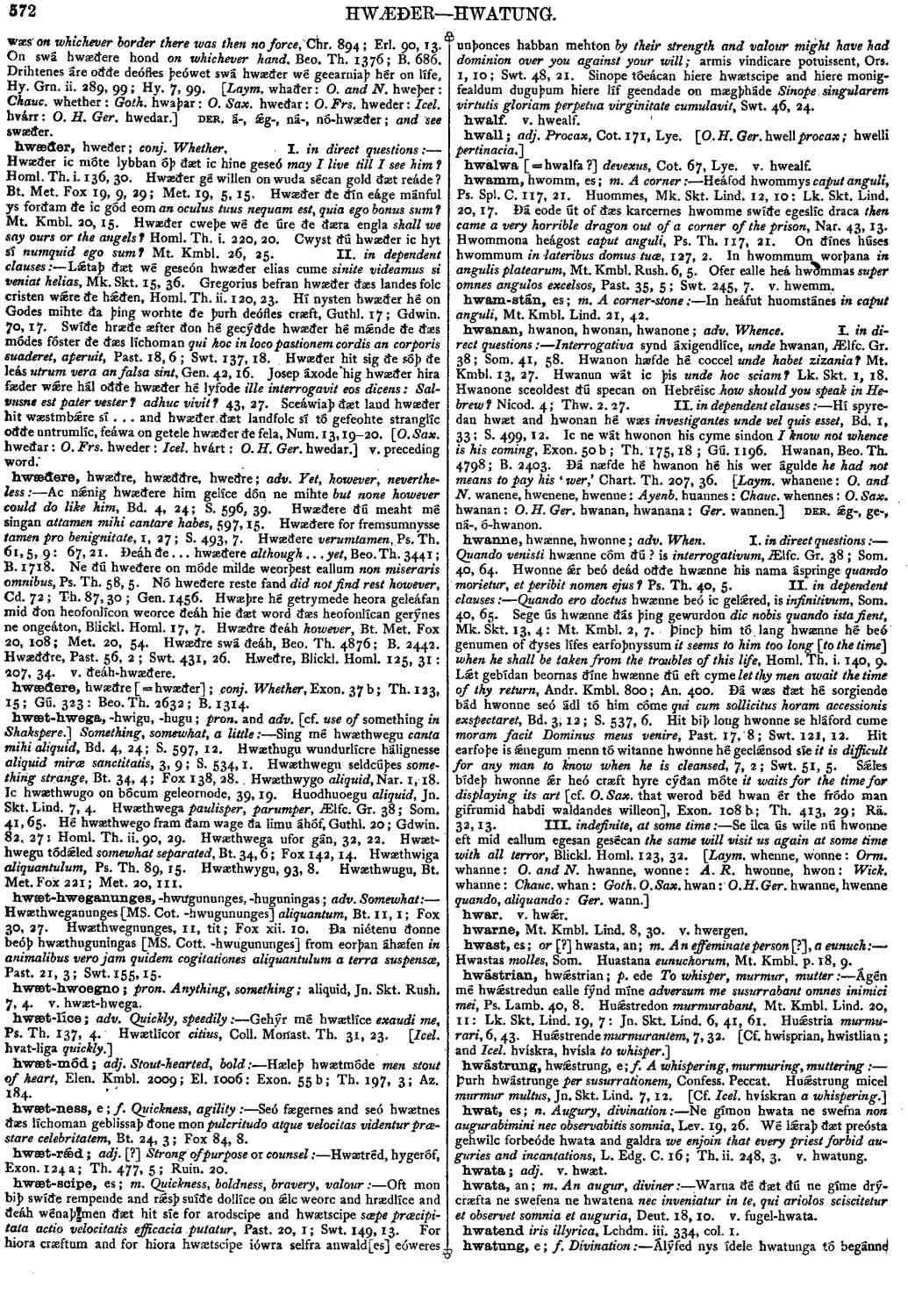hwanne
- adverb
-
Quando venisti
hwænne cóm ðú? is
interrogativum,- Ælfc. Gr. 38 ;
- Som. 40, 64 .
-
Hwonne ǽr beó deád oððe hwænne his nama áspringe
quando morietur, et peribit nomen ejus?
- Ps. Th. 40, 5 .
-
Quando ero doctus
hwænne beó ic gelǽred, is
infinitivum,- Som. 40, 65 .
-
Sege ús hwænne ðás þing gewurdon
dic nobis quando ista fient,
- Mk. Skt. 13, 4 :
- Mt. Kmbl. 2, 7.
-
Þincþ him tó lang hwænne hé beó genumen of ðyses lífes earfoþnyssum
it seems to him too long [to the time] when he shall be taken from the troubles of this life,
- Homl. Th. i. 140, 9 .
-
Lǽt gebídan beornas ðíne hwænne ðú eft cyme
let thy men await the time of thy return,
- Andr. Kmbl. 800 ;
- An. 400 .
-
Ðá wæs ðæt hé sorgiende bád hwonne seó ádl tó him cóme
qui cum sollicitus horam accessionis exspectaret,
- Bd. 3, 12 ;
- S. 537, 6 .
-
Hit biþ long hwonne se hláford cume
moram facit Dominus meus venire,
- Past. 17, 8 ;
- Swt. 121, 12 .
-
Hit earfoþe is ǽnegum menn tó witanne hwonne hé geclǽnsod síe
it is difficult for any man to know when he is cleansed,
- 7, 2 ;
- Swt. 51, 5.
-
Sǽles bídeþ hwonne ǽr heó cræft hyre cýðan móte
it waits for the time for displaying its art
[cf. O. Sax. that werod béd hwan ér the fródo man gifrumid habdi waldandes willeon],- Exon. 108 b ;
- Th. 413, 29 ;
- Rä. 32, 13 .
-
Se ilca ús wile nú hwonne eft mid eallum egesan gesécan
the same will visit us again at some time with all terror,
- Blickl. Homl. 123, 32 .
Bosworth, Joseph. “hwanne.” In An Anglo-Saxon Dictionary Online, edited by Thomas Northcote Toller, Christ Sean, and Ondřej Tichy. Prague: Faculty of Arts, Charles University, 2014. https://bosworthtoller.com/20083.
Checked: 1